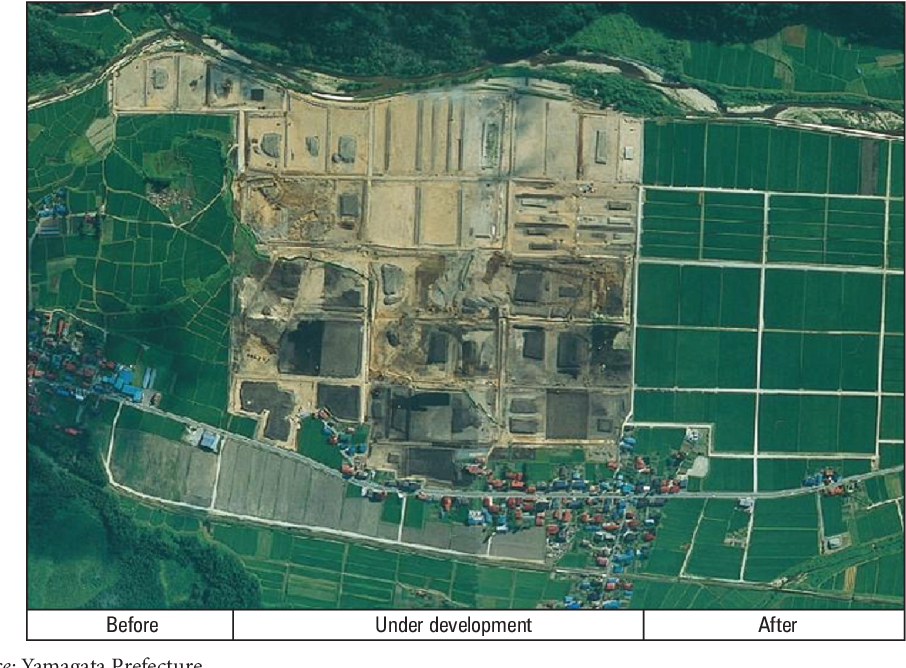
land consolidation.jpg

Land Consolidation
Definition:
Land consolidation is a process of reorganizing land parcels within a specific geographic area to create larger, more efficient agricultural units. It involves redistributing fragmented land holdings, consolidating scattered plots, and improving land tenure arrangements to enhance productivity, sustainability, and rural development.
Objectives and Benefits:
- Enhanced Agricultural Productivity: Land consolidation enables farmers to cultivate larger contiguous land areas, facilitating mechanization, economies of scale, and optimized crop management practices. Consolidated farms are easier to manage and implement precision agriculture techniques, leading to increased yields and profitability.Evidence: Studies conducted by the European Commission’s Joint Research Centre demonstrate that land consolidation projects in Europe have resulted in significant productivity gains, improved farm incomes, and enhanced competitiveness in the agri-food sector.
- Improved Land Use Efficiency: By rationalizing land holdings and minimizing fragmentation, land consolidation reduces non-productive land areas, such as field boundaries, access roads, and watercourses. This optimization of land use promotes more efficient resource allocation, maximizes agricultural output per unit area, and reduces environmental impacts.Evidence: Research published in Land Use Policy highlights the positive correlation between land consolidation and land use efficiency, emphasizing the role of spatial planning and land management strategies in optimizing agricultural landscapes for sustainable development.
- Enhanced Infrastructure Development: Land consolidation projects often involve the construction or improvement of rural infrastructure, including roads, irrigation systems, drainage networks, and storage facilities. These investments enhance agricultural accessibility, connectivity, and resilience to climate-related risks, fostering rural livelihoods and socio-economic development.Evidence: Case studies from the Food and Agriculture Organization (FAO) demonstrate the transformative impact of infrastructure development through land consolidation on rural communities, increasing access to markets, services, and employment opportunities.
Challenges and Considerations:
- Legal and Institutional Constraints: Land consolidation processes may encounter legal, administrative, and institutional barriers, including complex land tenure systems, conflicting property rights, and regulatory frameworks. Overcoming these challenges requires effective governance mechanisms, stakeholder engagement, and policy reforms to facilitate land transactions and ensure equitable outcomes.Evidence: Analysis conducted by the World Bank identifies legal and institutional barriers as key impediments to land consolidation initiatives in developing countries, highlighting the need for comprehensive land governance reforms and capacity-building efforts.
- Social and Cultural Factors: Land consolidation can have socio-cultural implications, particularly in communities where land ownership is tied to identity, tradition, and livelihoods. Resistance to consolidation may arise due to concerns about land tenure security, inheritance rights, and equity considerations, necessitating participatory approaches, dialogue, and conflict resolution mechanisms.Evidence: Ethnographic research from rural communities in developing regions reveals the complex interplay of social norms, customary practices, and power dynamics influencing attitudes towards land consolidation, underscoring the importance of context-specific interventions and inclusive decision-making processes.
- Environmental Considerations: While land consolidation can promote efficient land use and management, it may also exacerbate environmental degradation and biodiversity loss if not implemented sustainably. Mitigating potential negative impacts requires integrating environmental assessments, conservation measures, and agroecological principles into land consolidation planning and implementation.Evidence: Studies published in Environmental Management emphasize the importance of incorporating environmental considerations into land consolidation projects, advocating for landscape-scale planning, ecosystem-based approaches, and nature-based solutions to enhance resilience and sustainability.
Conclusion:
Land consolidation is a multifaceted process that offers opportunities to optimize agricultural land use, improve rural livelihoods, and promote sustainable development. By addressing productivity, efficiency, and equity considerations while mitigating associated challenges, land consolidation can contribute to resilient, inclusive, and environmentally sustainable food systems.
Fall off the barn roof and busted your keister? Life on the farm or ranch can be tough on the bum. Need a break? Laugh it off at FarmerCowboy.com, the #1 farm humor site. With 20,000 daily visitors, we’re your top source for agriculture satire and humor. Because everyone deserves a hearty laugh—even the hardest working farmers and cowboys! Join us and turn those long days into fun tales at FarmerCowboy.com.
Originally posted 2011-05-30 03:21:19.
Originally posted 2024-06-21 18:39:05.
Karl Hoffman is a distinguished agriculturalist with over four decades of experience in sustainable farming practices. He holds a Ph.D. in Agronomy from Cornell University and has made significant contributions as a professor at Iowa State University. Hoffman’s groundbreaking research on integrated pest management and soil health has revolutionized modern agriculture. As a respected farm journalist, his column “Field Notes with Karl Hoffman” and his blog “The Modern Farmer” provide insightful, practical advice to a global audience. Hoffman’s work with the USDA and the United Nations FAO has enhanced food security worldwide. His awards include the USDA’s Distinguished Service Award and the World Food Prize, reflecting his profound impact on agriculture and sustainability.




